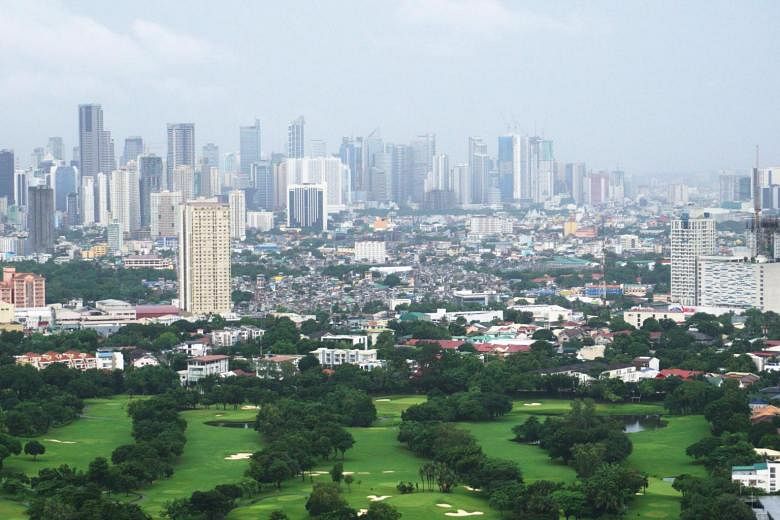MANILA (PHILIPPINE DAILY INQUIRER/ASIA NEWS NETWORK) - Two main economic issues confronting the Duterte administration today will define the Philippine landscape for years to come.
The first and more urgent issue is the inflation rate, which currently stands at the highest level in almost a decade.
Measures are being put in place to solve this problem, although the pain will surely be felt by the people in the succeeding months.
The second issue - and arguably the more important one over the long term - is how to grow the Philippine economy in a way that is equitable and sustainable.
Thankfully, the Duterte administration's economic managers already have a template for this in the form of the P9-trillion "Build, build, build" infrastructure programme that centres on 75 flagship projects identified by the National Economic and Development Authority (NEDA).
The problem is not that the programme isn't moving. There are many examples of long-running projects that are slowly but surely coming online. But there is a growing perception that it isn't moving fast enough. And today, more than at any other time in history, perception is reality.
According to the NEDA timetable, 31 projects were originally scheduled for groundbreaking this year. But with less than four months left before 2018 ends, only seven have actually entered the construction phase. Eight are under review, and 60 remain in the development stage.
There is no doubt that Filipinos would be benefited more if the "Build, build, build" programme were to be made to move faster.
Finance Secretary Carlos Dominguez III earlier said there were some roadblocks to the funding of these projects; he cited those that were set to be financed by official development assistance from China but were stymied by a bureaucratic revamp.
If these roadblocks are slowing down the infrastructure program, the administration should consider letting the private sector step in and fund the projects itself.
The biggest of these projects are commercially viable, anyway. It is true that funds sourced from the private sector will be more expensive than government-to-government loans, but the economic costs of delays are the most expensive of all.
Meanwhile, a substantial number of the infrastructure projects are bogged down by real estate access issues, especially those involving new roadways and transportation schemes that would have to pass through private property.
Right-of-way problems have historically been the Waterloo of big-ticket infrastructure projects, with the government and private owners often taking years to negotiate a fair price for the property in question, and sometimes years more in legal challenges in the courts. And in the meantime, everyone suffers because of the delays.
This is one area where the administration can bring President Duterte's vaunted iron will into play. The resolution of right-of-way problems can be done easily and quickly with the blessing of the President, who has a surplus of political capital and has used it to address some of the stickiest economic issues in recent years, such as massive tax evasion cases or the unpaid liabilities of the biggest businessmen in the country.
Indeed, Mr Duterte won the presidency in 2016 due largely to public frustration over the previous dispensation's inability to deliver more substantial economic gains to a wider portion of the Filipino populace.
The administration can correct this imbalance by redoubling its efforts toward getting the "Build, build, build" program moving faster.
The benefits of accelerating the infrastructure program are quite evident: Millions of direct and indirect jobs will be generated, which will support all kinds of allied industries that will, in turn, put more money in the hands of more Filipinos. This money will be spent to boost domestic demand and help the Philippines grow faster, not only for the wealthy but for the entire spectrum of the local economy.
The Philippine Daily Inquirer is a member of The Straits Times media partner Asia News Network, an alliance of 23 news media organisations.

